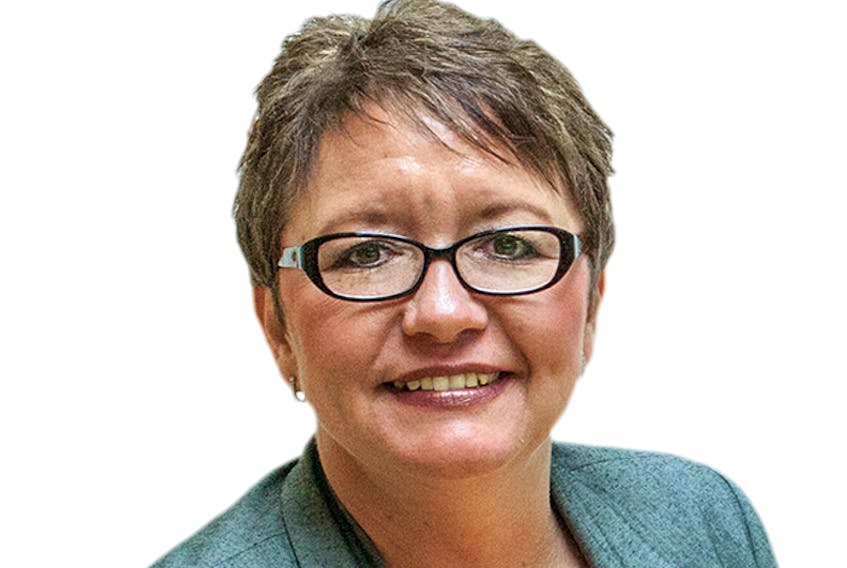The Tories hope to run their record to 7-and-0; the New Democrats want to hold on to what they had and, while the Liberals would dearly love a win, they’d settle for strong showings in two byelections that are likely to arrive in Nova Scotia about the same time as what passes for spring around here.
When Cape Breton Centre NDP MLA Tammy Martin’s resignation – for health reasons – becomes effective early next month, there will be two vacancies in the legislature, necessitating the sixth and seventh byelections since Premier Stephen McNeil’s Liberals were re-elected in May 2017.
The premier has until March 12 to call a byelection to fill the Truro-and-environs seat vacated by former New Democrat Lenore Zann, who ran and won Cumberland-Colchester for the federal Liberals in October.
It makes sense for the premier to call the Cape Breton Centre byelection at the same time, although he’s under no obligation to do so. He has six months from the time the seat becomes vacant to call a byelection, and the premier’s office said Tuesday that no decisions have been made on their timing.
The Progressive Conservatives (PC) have won all five provincial byelections since the 2017 general election, but that’s not quite as impressive as it sounds. The party held four of those five seats before resignations forced the byelections, and the one PC gain – Sackville-Cobequid – was a nail-biter, won by former Halifax regional councillor Steve Craig by fewer than 200 votes over New Democrat Lara Fawthrop.
Granted, that was a big win for the Tories, given that the Sackville-Cobequid seat had been in the NDP column consistently all the way back to 1984. Plus, the Tories need to improve on their results in Halifax County if they hope to form a government anytime soon. Craig’s win gave the PCs four of HRM’s 20 seats. The NDP also holds four seats in the cities. The rest are Liberals.
The NDP roots run deep in Cape Breton Centre, where the CCF – the Co-operative Commonwealth Federation, predecessor to the NDP – won its first seat in eastern Canada in the 1930s.
Martin took the seat from Liberal David Wilton in 2017, and Wilton had won it in a byelection in 2015, forced by the resignation of New Democrat Frank Corbett. So the Liberals will be hoping history repeats itself in Cape Breton Centre’s next byelection. The Tories haven’t held Cape Breton Centre since Mike Laffin retired from politics before the 1988 election.
The certain byelection this spring is in Truro-Bible Hill-Millbrook-Salmon River, which Zann first won when the NDP swept to power in 2009. Remarkably, she held the seat when the NDP were swept out of office in 2013, losing 24 of their 31 seats, and she won it again in 2017.
Before that, the Truro area had a long history of electing mostly Tories, but as NDP leader Gary Burrill points out, that was then, and the former Conservative stronghold has changed a lot since.
The NDP chose Kathleen Kevany, a professor at Dalhousie University’s agriculture faculty – the former Nova Scotia Agricultural College in Bible Hill – from a field of four candidates vying for the nomination.
The NDP doesn’t discount Zann’s personal popularity, but still has high hopes that Kevany will hold the seat, proving the party has staying power outside of its more traditional Halifax-Dartmouth and industrial Cape Breton hunting grounds.
Kevany brings an impressive academic and community-service record with a focus on sustainability and community well-being to the political fray.
The Truro byelection is shaping up as a tough battle. The Liberals nominated well-known and respected educator Allan Kennedy. The Tories nominated David Ritcey, a grandson of Gerry Ritcey who represented the area in the legislature from 1968 to 1974 and was Minister of Tourism and Industry in Ike Smith’s government. David Ritcey also has a strong record of community involvement, mostly in local business development and hockey.
Ivan Drouin is the Green Party nominee and independent Matthew Rushton is also a candidate.
Because the vacant Truro seat and the soon-to-be vacant Cape Breton Centre seat in the legislature were held by the NDP, that party has the most to lose in the coming byelections. The Tories, with gains in one or both would further their narrative that they are a government-in-waiting, while the Liberals will have lower expectations and less on the line.
Byelections are generally as much about local candidates as they are referendums on the government’s performance or the strength of opposition parties. But, the closer they come to a general election, the more power they have, or are given, as forerunners.
Jim Vibert, a journalist and writer for longer than he cares to admit, consulted or worked for five Nova Scotia governments. He now keeps a close and critical eye on those in power.
RELATED:









